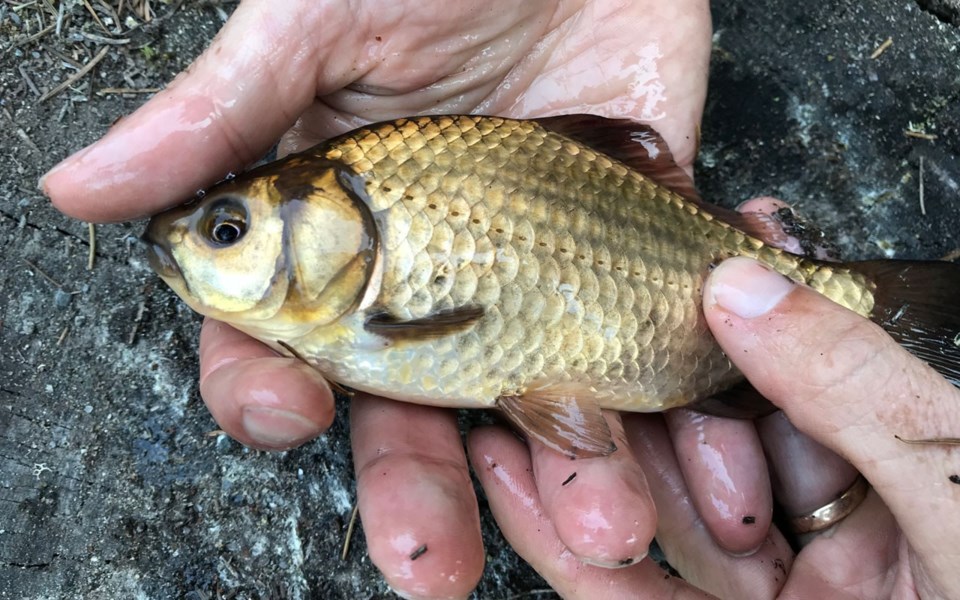When most people think of goldfish, they think of a small aquarium—maybe with a child hovering over top of it, sprinkling fish food in.
But residents of Black Tusk and Pinecrest say that the fish have become a fixture in their local lake.
"One person was telling me they're seeing schools of 30 to 40 fish when they're on paddleboards," said Clare Greenberg, executive director of the Sea to Sky Invasive Species Council (SSISC).
Members of the Pinecrest Lake Stewardship Society (PLSS) brought the goldfish to SSISC's attention. The organization believes the infestation began in the spring or early summer after someone released pet goldfish into the lake.
When released into the wild, goldfish are considered invasive because they are not native to this area and lack natural predators. They reproduce prolifically and quickly dominate aquatic environments, explained Greenberg.
"They're omnivores and they basically eat everything," she said, adding that that includes the eggs of native fish.
According to Greenberg, goldfish can grow to the size of a football when not constricted by the size of their aquariums. What's more, they can disturb sediment while feeding, increasing the turbidity (cloudiness) in the water.
This can affect aquatic plants and make it harder for other natural fish to catch food. Whistler is not immune from goldfish infestations, as goldfish have been known to inhabit Millar's Pond, a natural wetland in the Bayshores, for a number of years.
There is "anecdotal evidence" that there has been a drop in salamanders and native frogs since the goldfish have been thriving, said Greenberg.
To control the population, the RMOW has turned to electrofishing—an option that Greenberg said might be appropriate for Pinecrest Lake.
"We've been talking with the (Resort Municipality of Whistler) about options and how successful the electrofishing has been at Millar's Pond," she said.
"They send a current through the water that basically stuns the fish, and then the stunned fish float to the surface."
The process allows workers to remove the invasive fish, and does not kill them, said Greenberg, adding that it is commonly used for fish counts. Given the damage that goldfish and other animals—like rabbits—can cause, the SSISC is reminding people to never dispose of pets into the wild.
"Many of the goldfish populations have occurred because people release unwanted pets into the wild," she said. "Prevention is better than a cure, because once goldfish have established in a lake, it's very difficult to control them."




